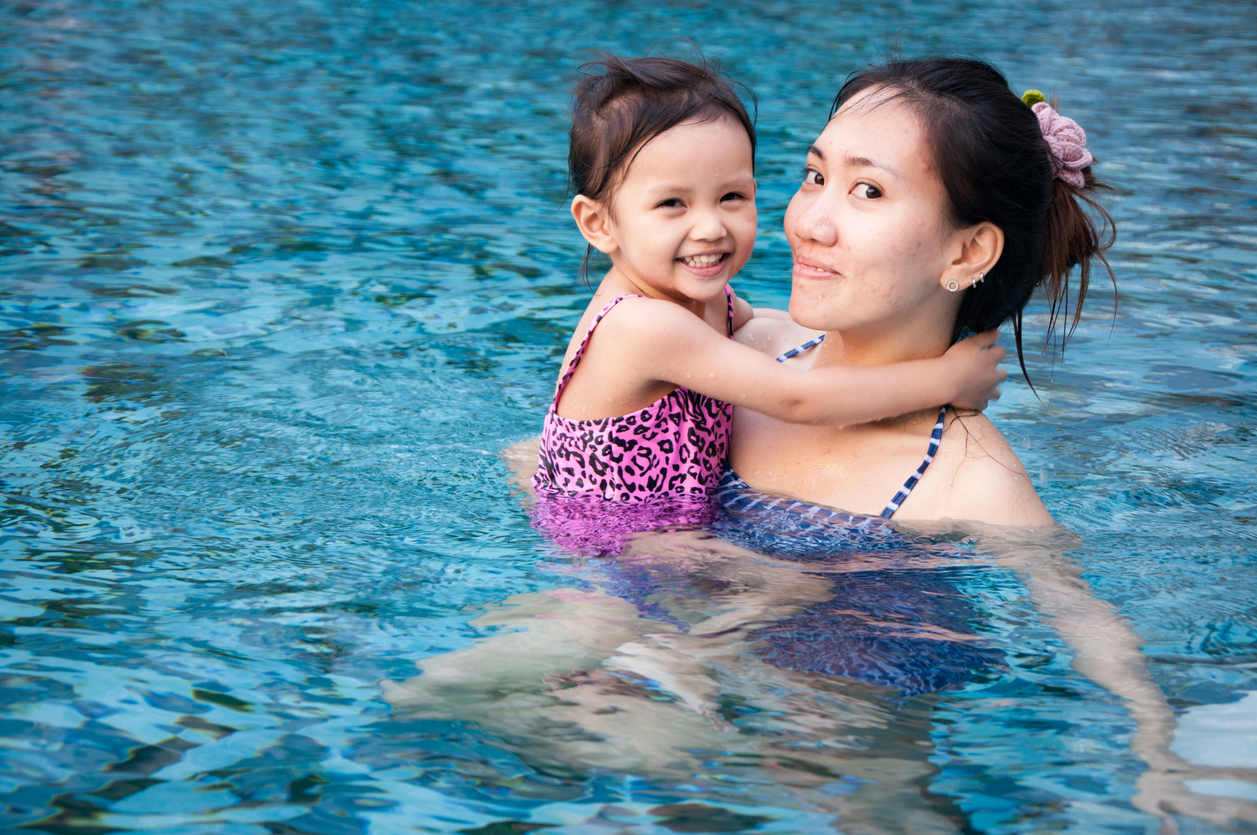As parents scramble to find ways to keep their kids active during the pandemic, water safety is even more important
When the weather’s hot, it’s natural for kids to be drawn to water — a pool, lake, river or ocean. Water is sparkly and refreshing, a place to have fun.
But now more than ever, experts are warning parents and families to be sure to take the right safety precautions around water.
Late summer and early fall raise special concerns in the Bay Area—especially in the inland areas like the Delta and the Tri-Valley, where warm weather is typical as late as October. Because of the pandemic, community centers that once offered supervised swimming pools may be closed. And schools are again providing instruction remotely, so kids are spending more time at home and possibly more time around a swimming pool or taking end-of-summer-vacation trips to rivers, lakes and other natural bodies of water. Add to this that many parents are working from home and may be distracted, and the potential for danger increases.
“Many people think about pools as fun and not necessarily as a hazard, but I always ask parents what steps have you taken to keep your child safe around the pool,’’ said Geri Landman, M.D., a pediatrician based in Berkeley with Sutter East Bay Medical Foundation (SEBMF), part of the Sutter Health integrated network of care.
Drowning is the leading cause of injury-related death for children 1 to 4 years of age, and at least one in five drownings are children ages 14 and younger, according to the Centers for Disease Control.
William Francis, M.D., an emergency room doctor at Sutter Delta Medical Center in Antioch, said he has treated several children for water-related injuries since the pandemic started.
“There’s an explosion of above-ground pools and spas, and part of that is because people start to look at what they can do around their house and there’s a rush to install equipment,” Dr. Francis said. “We have to remember that when a pool is installed – either above ground or in the ground – children need to be supervised 100 percent around water.”
Pediatricians with SEBMF say they counsel parents on safety measures and may also remind them that accidents around pools, even drowning, are a reality.
“Counseling is important during well-child visits and it’s important to remind parents it doesn’t take much for a child to for a child to drown,” said Susan Adham, M.D., an SEBMF pediatrician based in Antioch. “If necessary we remind parents that this continues to happen in our communities. Kids can get into trouble so quickly.”
To help kids stay safer in the water, clinicians at Sutter Health recommend:
- When young children are in or around water, an adult should be supervising at all times. If adults are in a group, appoint a “water watcher’’ who will pay close attention to the children, and avoid distractions like talking on a cell phone or drinking alcohol.
- Pam Stoker, a trauma injury prevention specialist at Sutter’s Eden Medical Center in Castro Valley, encourages parents to follow a protocol for active supervision that includes:
Attention – focusing on your child and nothing else because anything that takes your attention away increases your child’s injury risk.
Continuity – constantly watching your child. For example, don’t leave your child by the pool to go inside and get a towel.
Closeness – stay close enough to actually touch your child. If you are out of arm’s reach of your child, your ability to prevent injury goes down significantly. While it is impossible to actively supervise your child 24 hours a day, it is important to do so during activities that are high risk to your child’s safety. - Pools should be fenced on all sides with a 4-foot fence that kids cannot climb. The fence should have a gate with a lock that kids can’t reach.
- When using inflatable or portable pools, remember to empty them immediately after use. Store upside down and out of children’s reach.
Consider installing a door alarm, a window alarm or both to alert you if a child wanders into the pool area unsupervised. - Don’t rely on water wings or noodles as flotation devices. They are fun toys but no substitute for a Coast Guard-approved life jacket. A life jacket is particularly important in natural bodies of water that may be murky because the bright color stands out and is an effective way to locate children.
- Teach children to swim. They can start swimming lessons as young as 1 year.
- Learn CPR. Check for resources on first aid training at a local fire department, American Red Cross or American Heart Association.





